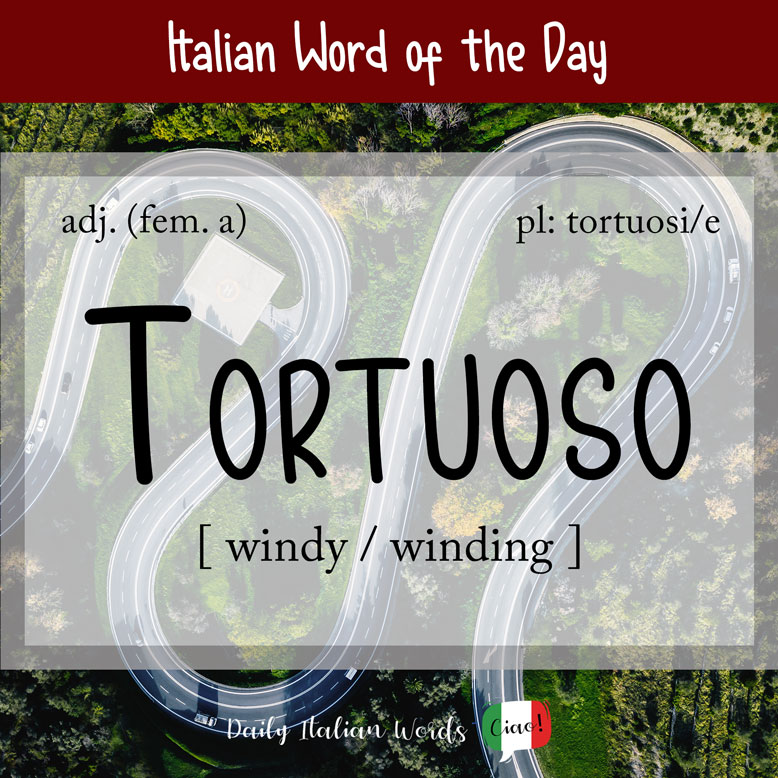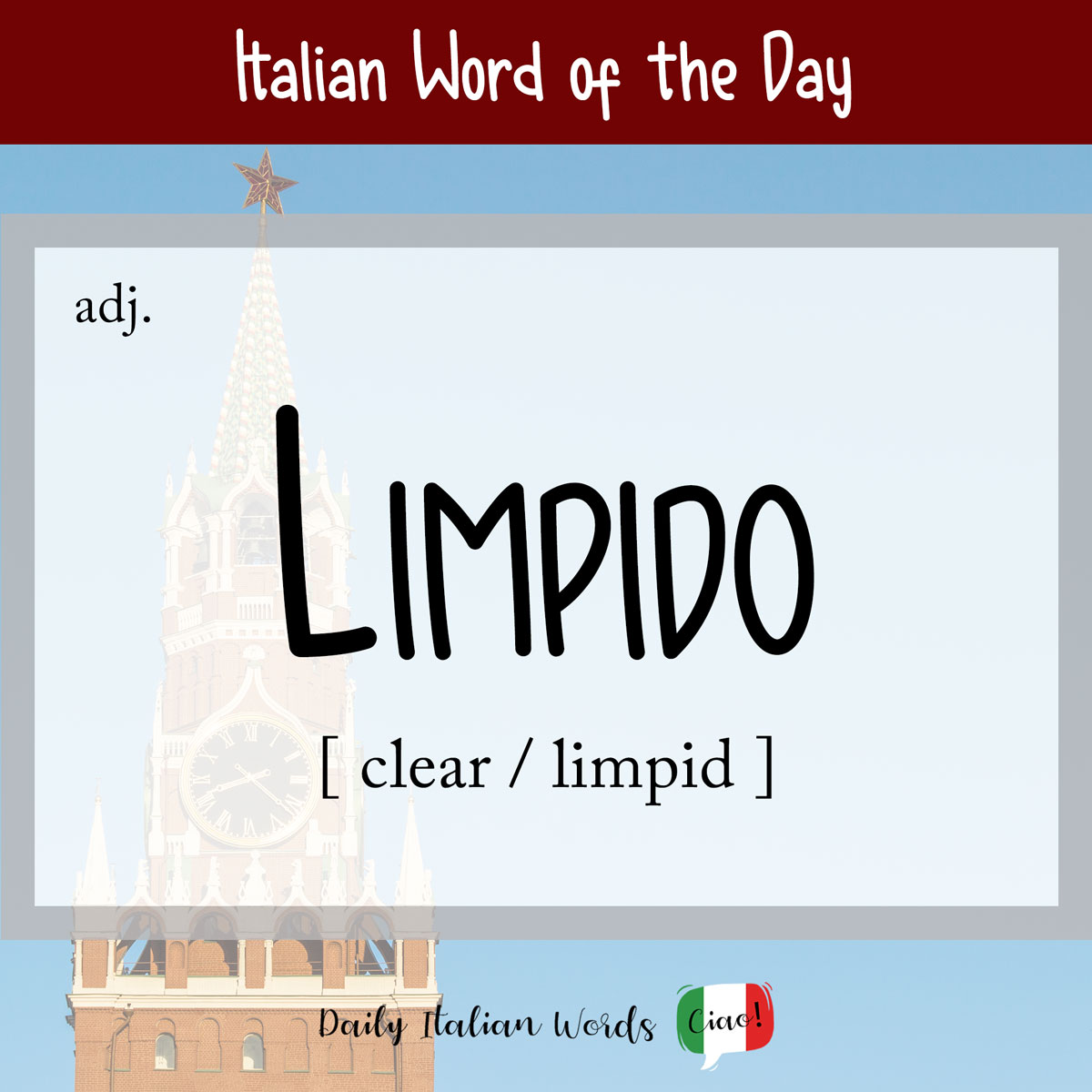Italian Word of the Day: Tortuoso (windy / winding)
If you are familiar with the word tortuous in English, you should have no trouble remembering its Italian equivalent tortuoso, which usually translates as windy or winding in everyday English. tortuoso windy / winding Adjectives such as tortuoso always agree with the noun they describe, which means that they have to demonstrate whether they are …






